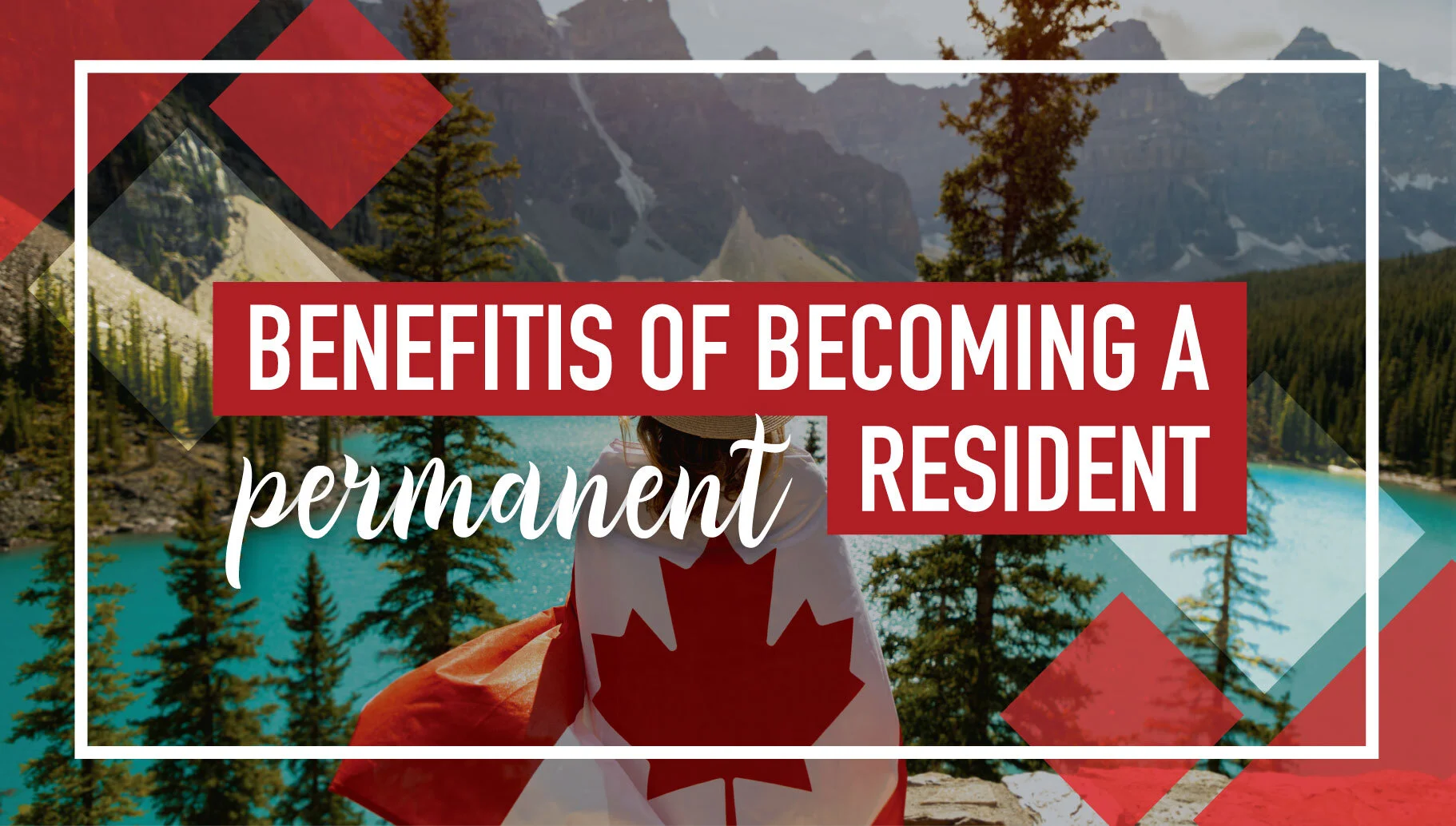BENEFITS OF BECOMING A PERMANENT RESIDENT
Why Canada?
Canada is one of the countries with the best quality of life. According to the OECD Better Life Index, Canada ranks above the average in housing, personal security, health status, environmental quality, jobs and earnings, work-life balance, education and skills, civic engagement, and income and wealth.
Can permanent resident work in Canada?
Being a Permanent Resident of Canada allows you to live, work, study, and have access to social benefits including health care coverage, and protection under Canadian laws. Canadian Permanent Residents have almost the same rights and responsibilities as Canadian citizens. Although permanent resident cannot vote or run for public office.
What is a permanent resident in Canada?
Permanent Residents are citizens of other countries who have been given Permanent Resident status by immigrating to Canada. All Permanent Residents receive a Permanent Resident Card, or “PR card”, as a method of proving their immigration status to authorities, especially after travelling outside Canada.
How long is permanent residency in Canada?
A Permanent Resident is not a Canadian citizen. Your Permanent Residence is given to you for a period of 5 years and you may apply for Citizenship once you have been in Canada for a period of 3 years. You can either do this or you can extend your Permanent Residence without limit.
Let’s check the most important benefits and rules you will have as a Permanent Resident:
Health in Canada
Do permanent residents in Canada get healthcare?
Canada offers excellent medical health care benefits to its citizens and Permanent Residents. Universal access to publicly funded health services is considered by Canadians as a "fundamental value”. Most medical expenses are covered through the Canadian universal health care program. These expenses include visits to your family doctors, specialist, emergency room, immunizations, yearly exams, and others.
Education in Canada
Canadian Residents have access to world-class free schooling. All children under 18 are entitled to free education in the Canadian public school system, and the Canadian government offers highly subsidized university education.
French and English are Canada’s official languages. Schools in Canada also teach French as a second language. Children of Permanent Residents will have the chance to learn English and French, besides their parents’ language.
As for Post-Secondary studies, you will be able to apply for scholarships and funding as any Canadian student. Also, tuition for Canadian students is much lower compared to international students.
Employment in Canada, how it works, who is allowed to work, how to start your business?
In general, Canada brings a lot of opportunities for skilled workers. Aerospace, IT, Tourism, Real Estate, Hospitality, infrastructure, and Automobile manufacturing industries are some examples of industries that provide an abundance of business, investment, and employment opportunities.
As a Permanent Resident you are allowed to work from the first day you arrive, so we suggest you start getting prepared even before you arrive. You will be adapting to a new style of work and also new ways to apply for jobs. Getting your Linkedin account ready is a good start.
Starting a business is something you can also do as a Permanent Resident, you can get financial assistance through the financing programs for small businesses that the government has in place.
Employment Insurance (EI) provides regular benefits to individuals who lose their jobs through no fault of their own (for example, due to a shortage of work, seasonal or mass lay-offs) and are available for and able to work, but can't find a job. You can read more about it here.
Through Employment Insurance, you could receive financial assistance of up to 55% of your earnings, to a maximum of $573 a week. These benefits will help you take time away from work to provide care or support to a critically ill or injured person or someone needing end-of-life care.
Canada offers the Old Age Security, the Guaranteed Income Supplement, and the Canada Pension Plan. All three of these programs are designed to provide financial support to workers after they reach retirement age, currently age 65.
How is maternity and Paternity in Canada?
In Canada, working parents are given time off when a new baby is born or adopted. Women can take up to 12 months of maternity leave and receive 50 to 65% of their normal income. Partially paid parental leave is also available for up to 35 weeks. If by any circumstances, a Canadian citizen or a Permanent Resident goes unemployed, the social security benefit supports them.
Social benefits
For families with children under the age of 18 who are considered to have a low-income, the Canadian government provides monthly tax-free payments to help cover expenses.
In emergency cases, the Government of Canada provides financial support to its citizens and Permanent Residents. During the COVID-19 pandemic, Canadian authorities are offering benefits and credits to people and businesses affected by the global outbreak.
Is Canada a Multi-cultural country?
Canada is a multi-cultural immigration destination. Peace and harmony exist, and foreign people, eager to launch a business at their own endeavor, are assisted. Canadian laws prohibit discrimination on the basis of gender, race, ethnicity, and other grounds.
You can immigrate to Canada alone or with your family and become a Canadian Permanent Resident. Immigration processes can be overwhelmed, that is why an immigration consultant can help you to understand how the process to immigrate or apply for any immigration program is, let the experts evaluate your profile to immigrate to Canada.
Global Opportunities is a Canadian immigration firm that can help you to accomplish your immigration-related objectives. Speak to trusted immigration professionals today. Contact us to evaluate your opportunities to immigrate to Canada.







